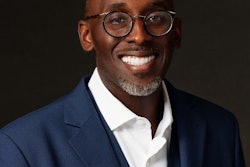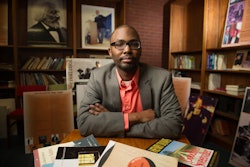As Dr. Stanley Sue planned for retirement from the University of California, Davis, this past summer, he realized he still wanted to work on projects of passion. So he shopped for another job, landing as a professor at Palo Alto University and director of its new Center for Excellence in Diversity.
As director, Sue, a pioneer among Asian-American psychologists, will examine PAU’s curriculum and recommend ways to weave more diversity and cultural competence into day-to-day teaching. Among other things, he’ll advise university officials on how to increase minority representation among students and faculty. PAU offers only psychology degrees—doctorate, master’s and bachelor’s—with undergraduates taking non-psychology courses at nearby De Anza College. Racial and ethnic minorities now represent 39 percent of the 703-student body at PAU and 26 percent of the 31 full-time faculty.
A clinical psychologist, Sue has championed culturally sensitive mental health services and studies of cross-cultural effects on behavior. He’s the third of three academic psychologist brothers. Dr. David Sue is professor emeritus of Western Washington University; Dr. Derald Sue is a Columbia University professor. Stanley Sue’s professional journey began when, to fulfill a high school assignment, he ran this experiment on classmates: He had the students memorize a list and then later memorize a second list. After memorizing the second list, the students had trouble remembering items from the first. “The results were exactly what was predicted, and I was hooked on psychology and human behaviors,” he says.
After earning his doctorate in 1971, Sue taught at the University of Washington; the University of California, Los Angeles; and then at UC Davis. He maintained a private practice for more than a decade but eventually devoted himself solely to academia. His research focused on relationships between ethnicity and mental health and how to better alleviate emotional distress among minorities. Early on, Sue discovered that, while all minorities tended to underuse mental health services, Asian-Americans were particularly prone to delay such care until problems became crises for their families. Why? He cites a shortage of bilingual and bicultural therapists and cultural reasons such as shame, stigma and the misconception that mental health problems were virtually untreatable deformities.
The findings were a springboard for National Institute of Mental Health-funded initiatives that let Sue conduct theoretical and applied research aimed at influencing mental health policy and service delivery. Now known as the Asian America Center on Disparities Research at UC Davis, Sue remains a co-principal investigator.
Sue co-authored a book with his brothers, Understanding Abnormal Behavior, which has been lauded for its extensive coverage and integration of multicultural models. The book, now in its ninth edition, contends that studying abnormal psychology helps mental health professionals treat disorders more capably.
Dr. June Chu, who teaches Asian-American psychology and runs an Asian student resource center at the University of Pennsylvania, chose UC Davis to obtain a doctorate in social psychology. “Every day, regardless of whether I’m lecturing or advising, I’m thinking about the influences of culture in how Asian-American college students approach their lives,” she says. “Stan’s work gives me a foundation on which to advocate for a multicultural understanding of what it means to be ‘American.’”
The American Psychological Association named an award in Sue’s honor that annually recognizes a psychologist who’s made significant contributions to the understanding of human diversity. The Asian American Psychological Association, which Sue and others founded in the early 1970s, now boasts enough members that more than 100 people attend its annual conference.
“Society knows we have legitimate complaints, but what we’re pushing for is not yet reached. We still need cultural competence in more policies and programs, especially where new immigrants are concerned,” Sue said.


















